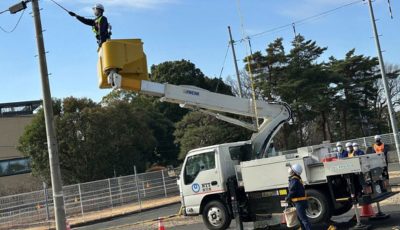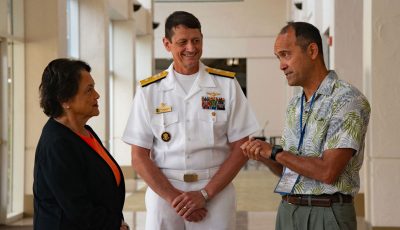TV show host puts spotlight on voting rights for US territories
Late-night television show host John Oliver tackled voting rights for American citizens in U.S. territories during “Last Week Tonight,” which aired Sunday on HBO.
With a heavy dose of humor and satire, Oliver took a swing at the U.S. government which, while calling territory residents as “American citizens,” does not allow these “citizens” to vote.
U.S. territories include the U.S. Virgin Islands, Puerto Rico, Guam, American Samoa, and the Commonwealth of the Northern Mariana Islands.
He poked fun at how the government allows territories to have a delegate in Congress who basically “can’t do much.”
Oliver cited the case of Guam and its importance to the U.S. military. About 27 percent of Guam’s land mass is occupied by Navy and Air Forces, “and yet the residents of Guam have absolutely no say in general elections for their commander-in-chief,” Oliver said.
What is harder to swallow, Oliver said, is that 1 in 8 residents in Guam are U.S. veterans, which is among the highest in U.S. states and territories. “Those veterans are shamefully under-served,” he said.
But Guam’s issues are relatively minor, compared to American Samoa, an “unincorporated territory.”
Residents born in American Samoa are not even granted citizenship, although American Samoa has the highest rate of military enlistment. Residents of American Samoa are not “citizens” but are considered “nationals.”
“This means that the ‘American’ in American Samoa is really just a title that doesn’t mean anything, like ‘People’s Choice Awards’ nominee or ‘social media experts,’ just devoid of meaning,” Oliver said.
He poked fun at how the federal government uses a more than 100-year-old law to address the concerns of U.S. territories.
Lawsuits have actually been brought against the U.S. government regarding citizenship and voting rights.
“But the Obama administration has fought them by citing the ‘Insular Cases’ from earlier, which suggested that ‘American Samoans, just like any all residents of the territories, can be given fewer rights because they belong to alien races,’ differing from us in customs and modes of thought,” Oliver quipped.
He said “this not an easy thing to do,” but if “we figured out a lot more complicated things in the last 114 years, we should be able to work out a way to have the 4 million people who live there [U.S. territories] get adequately heard.”



























